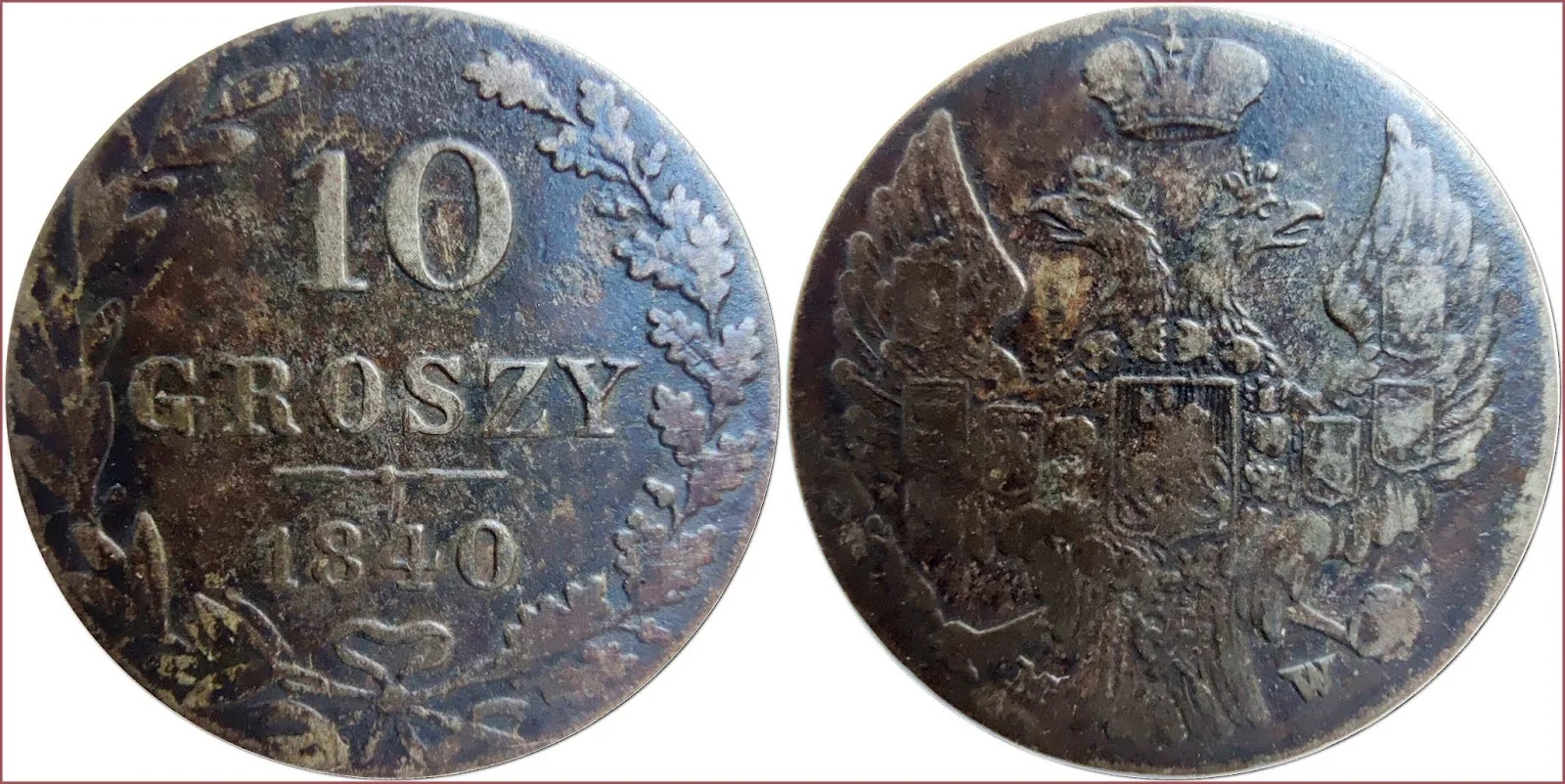GROSZ: COIN OF POLAND
10 groszy, 1840: Russian partition of Poland (Congress Poland)
10 GROSZY 1840.
Floral ornament.
Coat of arms of the Russian Empire (the double-headed eagle).
Mint: Warsaw (Poland) — sign "MW" (Polish "Mennica Warszawska").
Mintage: 60.789.229.
- Silver (0.192): 19 mm - 2.79 g
- Reference price: 12$
COIN GROSZ — WHERE & WHEN (coins catalog: by names & emitents)
- POLAND (from the 14th century to the present):
- Kingdom of Poland
- Polish-Lithuanian Commonwealth
- Duchy of Warsaw
- Russian partition of Poland
- Republic of Poland
- German Occupation WW II of Poland
- Republic of Poland
- Polish People's Republic
- Republic of Poland
Grosz is one of the oldest coins used in the world today and, at the same time, it is a symbolic coin for Poland. With minimal breaks, grosz (in its various forms) has been minted since the middle of the 14th century! What other coin can boast of such stability?..
For the last few centuries, the Polish grosz has served as a changeable coin of zloty.
In numismatics, in addition to, in fact, grosz coin is also distinguished by the following maximally related coin names:
- grosz krakowski
- grosz gdański
- grosz koronny
- grosz pruski
- grosz elbląski
- grosz litewski
- ...
The name of the coin grosz (plural: groszy) and related coin names comes from the silver Italian (Genoa) coin of the 12th century grossus denarius (literally from Latin: large, thick denarius). The name has taken root in many European countries in various word forms: French gros (gros tournois), Italian grosso, German groschen and groten, English groat, Polish grosz...
In the Ukrainian and Belarusian languages, the term "money" ("гроші / грошы") is formed from this word.

